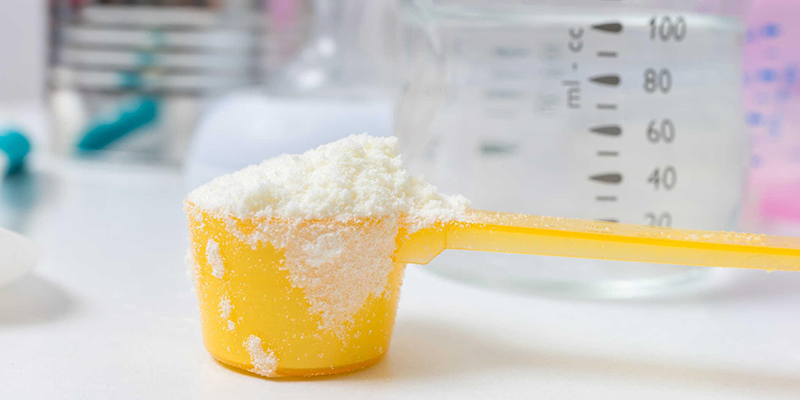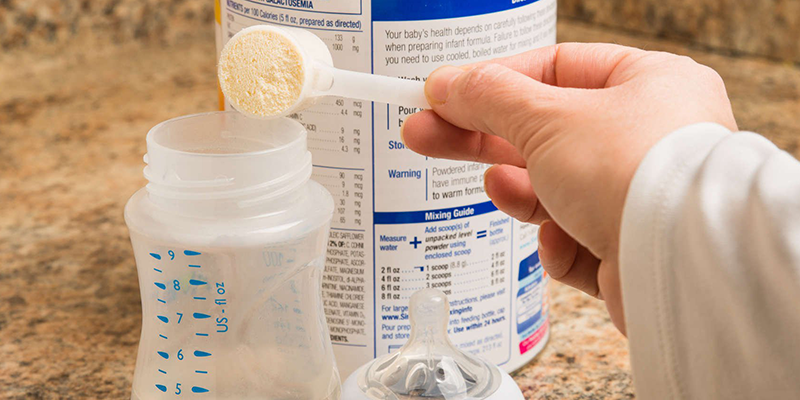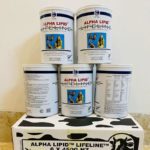1 Choosing the Right Baby Formula for Your Little One’s Age
During the First Few Months
As your baby’s digestive system is not yet fully developed, introducing the wrong foods can lead to vomiting and spit-ups. It is important to choose a baby formula that is suitable for their delicate tummies. In particular, during these early months, avoid cow’s milk, cream, and condensed milk. Always use cooled boiled water when preparing formula.
 In the first few months, opt for a formula that most closely resembles breast milk
In the first few months, opt for a formula that most closely resembles breast milk
Look for formulas with a balanced nutritional profile, similar to breast milk, that are easily absorbed and digested by infants. Formulas like Similac Newborn 1 IQ Plus and Frisolac Gold are great options.

From 6 Months to 5 Years Old
At this stage, nutritionists recommend providing your little one with approximately 500ml of formula per day. As their bodies become accustomed to solid foods, this increased amount of formula ensures they receive the necessary nutrients to support their growing needs and daily activities.

2 Selecting Formula Based on Its Ingredients
This is a crucial consideration for many parents, as the nutritional requirements of infants change with their age. Pay close attention to your child’s development and adjust their formula accordingly.

When examining the ingredients of baby formulas, certain nutrients are considered essential for your baby’s growth and development. These include protein, fatty acids (DHA and ARA), vitamins, and minerals. Reputable brands should adhere to specific nutrient guidelines:
– Protein (within permitted limits) and its source (soy, cow’s milk, rice, etc.).
– Energy and fat content (within permitted limits).
– Maximum allowable aluminum concentration.
– Types and amounts of vitamins, minerals, and biologically active compounds such as fish oil and probiotics.
– Clear instructions on dosage and preparation.
– Ratio of essential fatty acids (LA and ALA).
– Omega 6 to Omega 3 ratio (including EPA and DHA).
– Sugar and sweetener content.
Regardless of the brand, always prioritize formulas with higher levels of these critical nutrients.

Additional Tips:
The above guidelines offer a helpful starting point for selecting the right baby formula for your little one. For further personalized advice, consult your pediatrician. With their guidance, you’ll be able to choose the perfect formula to support your child’s unique needs. Additionally, consider exploring options like Dielac, ensuring your baby receives the very best nutrition for their development.
Alpha Lipid Lifeline: Optimal Health Nutrition at Your Fingertips
Alpha Lipid Lifeline is a line of functional powdered milk, created to provide essential nutrition for optimal health. It clearly demonstrates its purpose by boosting immunity, resilience, and caring for cells and organs to ensure a healthier and more comprehensive development every day.





































